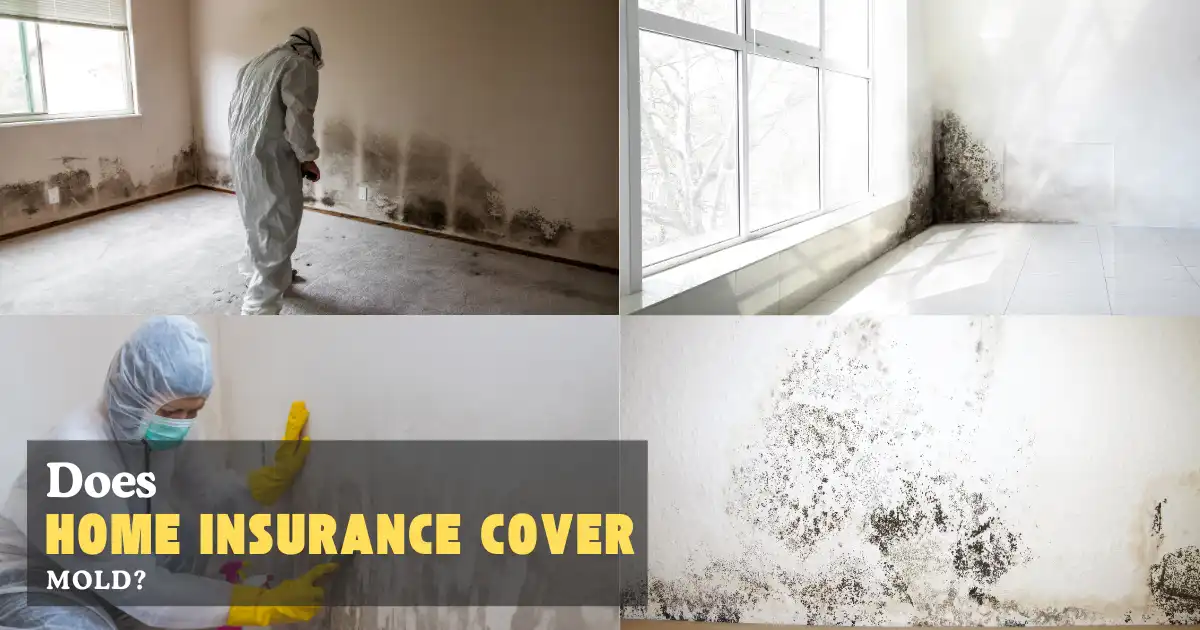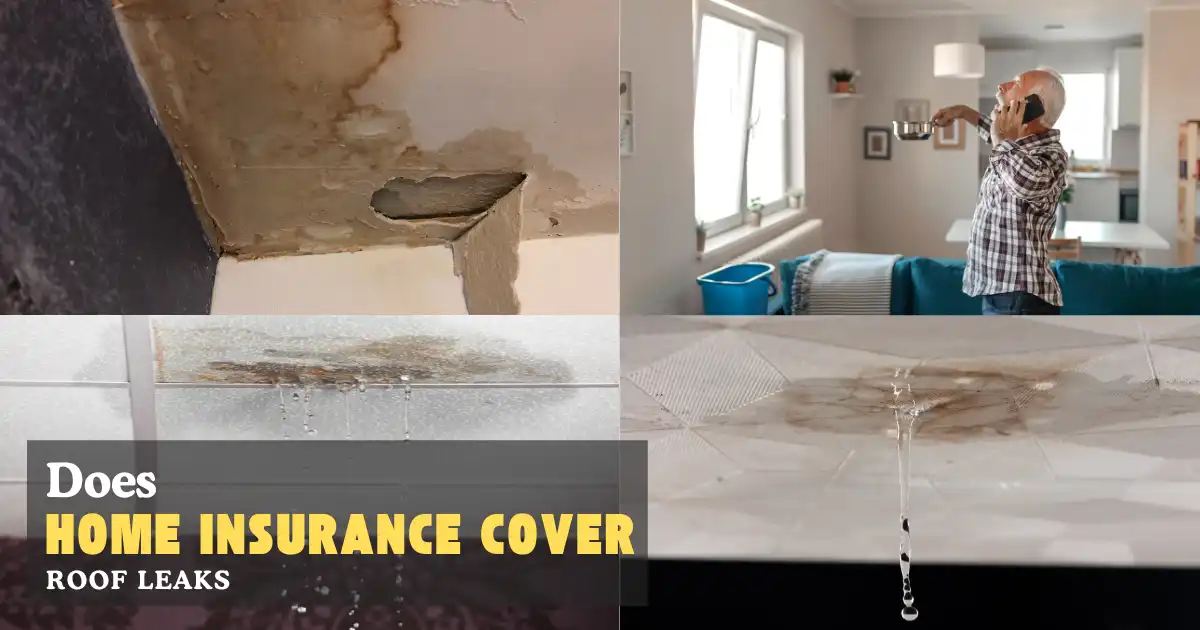Home insurance can be a means to protect yourself and your home from sudden disasters and costly repairs. But when it comes to mold, termites, and roof leaks many homeowners ask: “Am I covered? ” It’s not always simple. It’s not always easy is contingent on the reason for the incident, the information provided by your policy as well as the speed at the speed at which you respond.
This comprehensive guide will provide protections, as well as what’s not covered, as well as how to protect your home and wallet from the typical dangers.
What Is Home Insurance?
Home insurance is a type of policy that safeguards your home and belongings against damage or loss caused by insured risks like theft, fire as well as storms. It also covers specific types that cause water destruction.

It is generally composed of:
- Repairs the structure of your home.
- Protects your belongings.
- Protects against injuries or damages caused to others on the property.
- Temporary housing in the event that your home isn’t habitable.
Cost of Home Insurance by Policy Type
| Policy Type | Average Annual Premium (2025) |
|---|---|
| Basic (HO-1) | $800 – $1,200 |
| Broad (HO-2) | $1,000 – $1,500 |
| Special (HO-3) | $1,200 – $2,000 |
| Comprehensive (HO-5) | $1,500 – $2,500 |
| Renters (HO-4) | $200 – $400 |
| Condo (HO-6) | $400 – $800 |
The prices depend on the the location and the value of your home, in addition to the coverage limits.
Cost of Home Insurance by Home Size
| Home Size | Average Annual Premium |
|---|---|
| Apartment/Condo | $400 – $800 |
| Small Home | $800 – $1,200 |
| Medium Home | $1,200 – $1,800 |
| Large Home | $1,800 – $2,500+ |
The bigger homes and properties that have higher value will be more expensive for insurance.
Factors Influencing Home Insurance Coverage
- Type of Policy: The HO-1, the HO-2 HO-3, and HO-5 offer different degrees of protection from insurance.
- Exclusions: A lot of policies do not cover specific hazards like floods, earthquakes, or the damage caused by insects.
- Maintenance: Any damage caused from negligence or inability to maintenance is generally not fixed.
- Endorsements/Riders: Additional protection could be provided to protect particular risks.
- High Risk Areas: Zones that are susceptible could have other exclusions.
Does Home Insurance Cover Mold?
1. When Mold Is Covered
Insurance for homes can be able to protect against mold damage if it’s caused by insured risk. For instance:
- Unexpected and accidental water causes damage.
- The harm to water caused by putting out the fire.
- The damage caused by storms or hail causes water intrusion.
Example:
When the pipe ruptures and causes an increase in mold your insurance policy will cover the water damage, as well as the removal of mold.
2. When Mold Is Not Covered
Most policies won’t cover mold when it’s resulted from:
- Leaks or seepage that last for a long duration
- Inadequate maintenance or negligence
- High humidity or condensation
Example:
If you do not act regarding the leak under your sink, and it continues to get worse, the claim may be rejected.

3. Mold Remediation Costs
Mold Type DIY Removal Cost Professional Removal Cost
- Small Area $20-$100 $500-$1,500
- Large Area $100-$300 $2,000-$6,000+
A mold problem that is significant or hidden may need flooring or wall replacement.
4. How to Prevent Mold Claims
- Be sure that leaks are addressed immediately.
- Use exhaust fans in bathrooms and kitchens.
- Keep humidity below or equal to 50 percent..
- Clean up and test regularly.
Does Home Insurance Cover Termites?
1. Why Termite Damage Is Usually Excluded
The damage caused by termites is believed to be preventable because of insufficient maintenance this is the reason it’s typically exempt from typical homeowner’s insurance policies.
2. Exceptions and Special Cases
- Certain insurance policies might be able to cover an accidental unexpected injury resulted from termites (rare).
- Certain endorsements and special policies may provide a certain quantity of cover.
3. Termite Treatment and Repair Costs
| Service Type | Average Cost (2025) |
|---|---|
| Inspection | $75 – $200 |
| Treatment | $500 – $2,500 |
| Structural Repairs | $1,000 – $10,000+ |
The cost for severe infestations can run into the many thousands needed to repair.
4. How to Prevent Termite Damage
- Schedule for annual examinations.
- Make sure you keep mulch and wood away from the foundations of your house.
- Fix leaks, and drain issues.
- Cover any entry points or cracks.
Does Home Insurance Cover Roof Leaks?
1. When Roof Leaks Are Covered
The insurance for homes typically covers roof leaks, if they occur as a result of an unplanned incident that is not intentional, such as:
- Storm destruction.
- Fire.
- Vandalism.
Example:
A hailstorm could damage the roof of your home, leading to the roof to leak. Insurance will most likely cover repairs.
2. When Roof Leaks Are Not Covered
Roof leaks can’t be prevented if they are due to:
- Wear and tear, simply age
- Poor maintenance or negligence
- Pre existing damage
- Gradual deterioration
Example:
If your roof is older than 25 years and starts to leak as a result of aging your claim could be denied.

3. Roof Leak Repair Costs
| Repair Type | Average Cost (2025) |
|---|---|
| Minor Leak Repair | $150 – $500 |
| Major Leak Repair | $500 – $2,000 |
| Full Roof Replacement | $5,000 – $15,000+ |
Costs are determined by the roof type, nature, and the extent of the damaged.
4. How to Prevent Roof Leak Claims
- Check your roof twice times per year, as well as when there are storms.
- Clean downspouts and gutters.
- Fix damaged or broken shingles right away.
- Replace aging roofs before leaks develop.
How to File a Home Insurance Claim for Mold, Termites, or Roof Leaks
- Document the Damage: Film and photograph of the areas affected.
- Stop Further Damage: Do temporary repairs in situations where safe to do so.
- Contact Your Insurer: Create the claim as fast as you can.
- Schedule an Adjuster Visit: An insurance firm employs an adjuster to assess the damage.
- Provide Documentation: Sharing maintenance documents, as well as audit reports, receipts and inspection reports.
- Get Repair Estimates: Request quotes by licensed companies.
- Follow Up: Stay in contact with your insurer and contractor until repairs are complete.
Tips for Maximizing Your Coverage and Avoiding Denials
- Know the rules and regulations that apply to you.
- Regular maintenance prevents denials.
- Create a brief assessment of the damage, and make repairs swiftly.
- Record keeping Keep receipts, inspection reports, aswell in photos.
- Request endorsements Add additional protection against pests, mold or roof leaks, if required.
- Employ licensed professionals reliable contractor to do repairs as well as inspections.
Conclusion
Mold, termites, and leaks on roofs can be one of the most common and expensive issues that homeowners have to deal with. Although home insurance may provide a significant level in protection, it’s essential to know the coverage and the best way to avoid claims being refused.
If you’re active about maintenance by understanding your home’s policies and swiftly resolving problems when they occur, you’ll have the ability to protect the security of your home and safeguard your assets in the financial sector from unexpected surprises.
FAQs
Do home insurance policies provide protection against the growth of mold?
Only if it is caused by a covered peril such as a burst pipe or storm damage. Mold caused by neglect or long-term leaks is not covered.
Are termites covered under a home insurance policy?
No, damage caused by termites is almost always excluded because it is considered preventable.
When does homeowner insurance cover roof leaks?
Roof leaks are covered if caused by sudden, accidental events like storms or fire. Leaks from wear and tear are not covered.
How can I prevent termites, roof leaks, or mold?
Regular maintenance, prompt repairs, and annual inspections are essential to prevent these issues.
Are there options for adding extra protection against these risks?
Yes, you can contact your insurance company about endorsements or riders that protect against mold, pests, and roof leaks.
What should I do if my claim is rejected?
Review your policy, gather documentation, and consider appealing or consulting a public adjuster.
How often should I inspect my home for these issues?
At least twice a year, and after major events such as storms or water damage.
